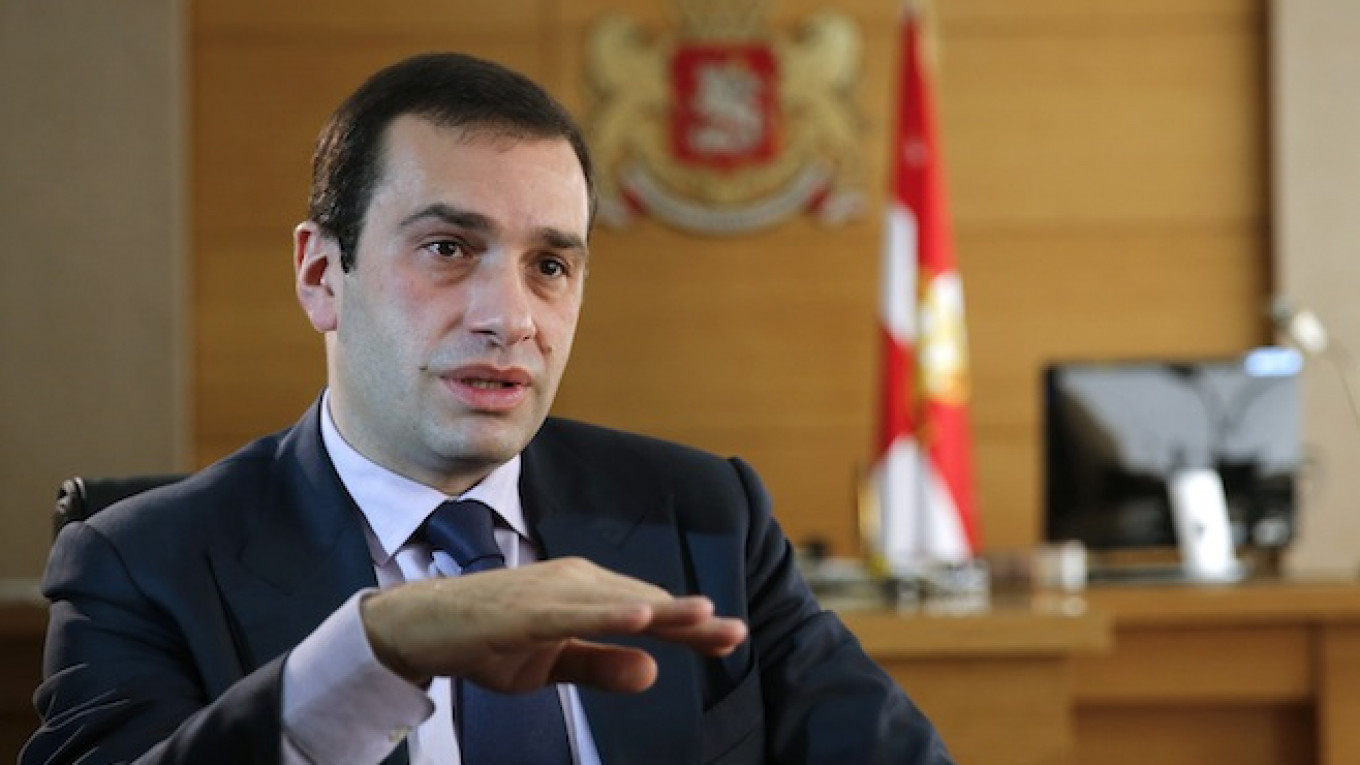TBILISI, Oct 17 — Georgia will not allow pressure from Russia to stop it hosting a NATO training center on its territory or deter its plans to deepen ties with the West, the former Soviet republic's defense minister said.
The South Caucasus country of 4.5 million, crossed by pipelines that carry Caspian oil and gas from Azerbaijan to Europe, went to war with Russia in 2008 and remains wary of antagonizing Moscow as it tries to move further out of its orbit.
"Confrontation with Russia should be avoided. Georgia needs stability," Defense Minister Irakly Alasania said in an interview. "But we will never bow to the Russians … to a 'diktat' from Russia on what is better for Georgia."
Georgia has watched closely as the conflict unfolded in eastern Ukraine, where Russia annexed the Crimea peninsula in February and pro-Russian separatists rose up in mid-April against Ukrainian government forces.
The 2008 war between Moscow and Tbilisi was fought over breakaway moves by the Georgian regions of South Ossetia and Abkhazia, which are now under Russian control.
"We want Ukraine to be successful and in this regard we see Russia's actions as the main threat to the security of the region," the minister said in the interview on Thursday.
Russia has said it would regard NATO membership by Ukraine as a security threat and has increasingly raised reservations about Kiev's hopes of joining the European Union. It has also imposed trade embargoes in Georgia as it charted a pro-Western course.
Alasania said Georgia, which signed an association agreement with the EU in June that deepens trade and political ties, was pressing on with efforts to join NATO despite failing this year to be granted a Membership Action Plan, a formal step towards accession.
Georgia's former envoy to the UN and defense minister since 2012, the 40-year-old said cooperation with NATO would include hosting a training centre with the alliance.
"This centre will be jointly operated by NATO and Georgia and it's going to be an additional layer of security and defensive capability for Georgia," he said.
"It will be a Georgia-owned facility, but planning will be jointly done with NATO."
He said NATO advisers would also help set up a separate logistical centre to facilitate the training centre, with NATO member states covering the bulk of the expenses for the creation of both centers as well as the training and exercises.
Georgia's armed forces would receive further support from the alliance by having senior NATO officers attached to the army's general staff, he said.
Georgia has enjoyed a strong relationship with the U.S. since securing independence from the Soviet Union in 1991, and showed its support for NATO by sending troops to fight in Afghanistan.
Alasania said Tbilisi was ready to share its experience with Iraq to help "build strong institutionalized armed forces there" and was exploring ways to help as the U.S. tackles Islamist fighters.
A Message from The Moscow Times:
Dear readers,
We are facing unprecedented challenges. Russia's Prosecutor General's Office has designated The Moscow Times as an "undesirable" organization, criminalizing our work and putting our staff at risk of prosecution. This follows our earlier unjust labeling as a "foreign agent."
These actions are direct attempts to silence independent journalism in Russia. The authorities claim our work "discredits the decisions of the Russian leadership." We see things differently: we strive to provide accurate, unbiased reporting on Russia.
We, the journalists of The Moscow Times, refuse to be silenced. But to continue our work, we need your help.
Your support, no matter how small, makes a world of difference. If you can, please support us monthly starting from just $2. It's quick to set up, and every contribution makes a significant impact.
By supporting The Moscow Times, you're defending open, independent journalism in the face of repression. Thank you for standing with us.
Remind me later.






